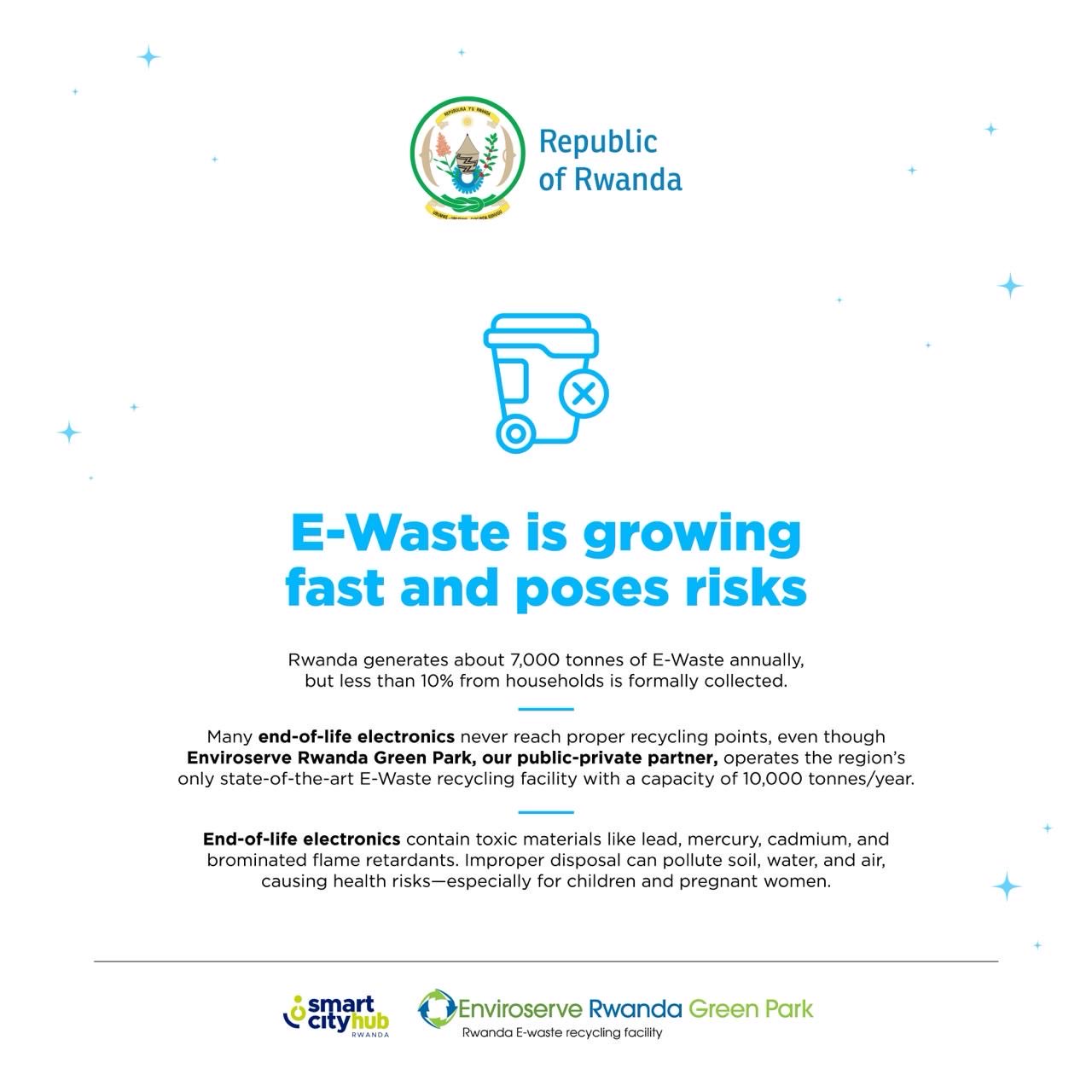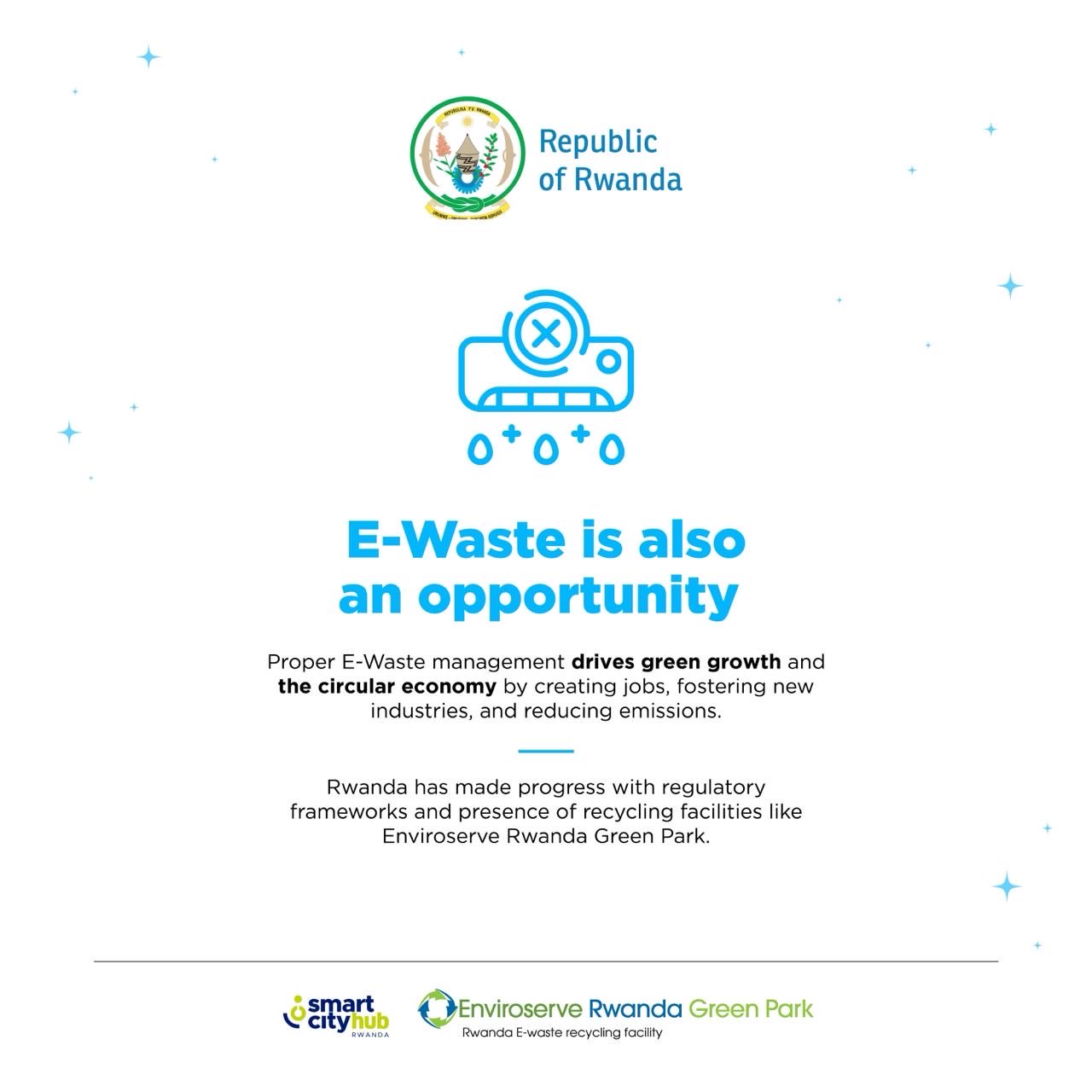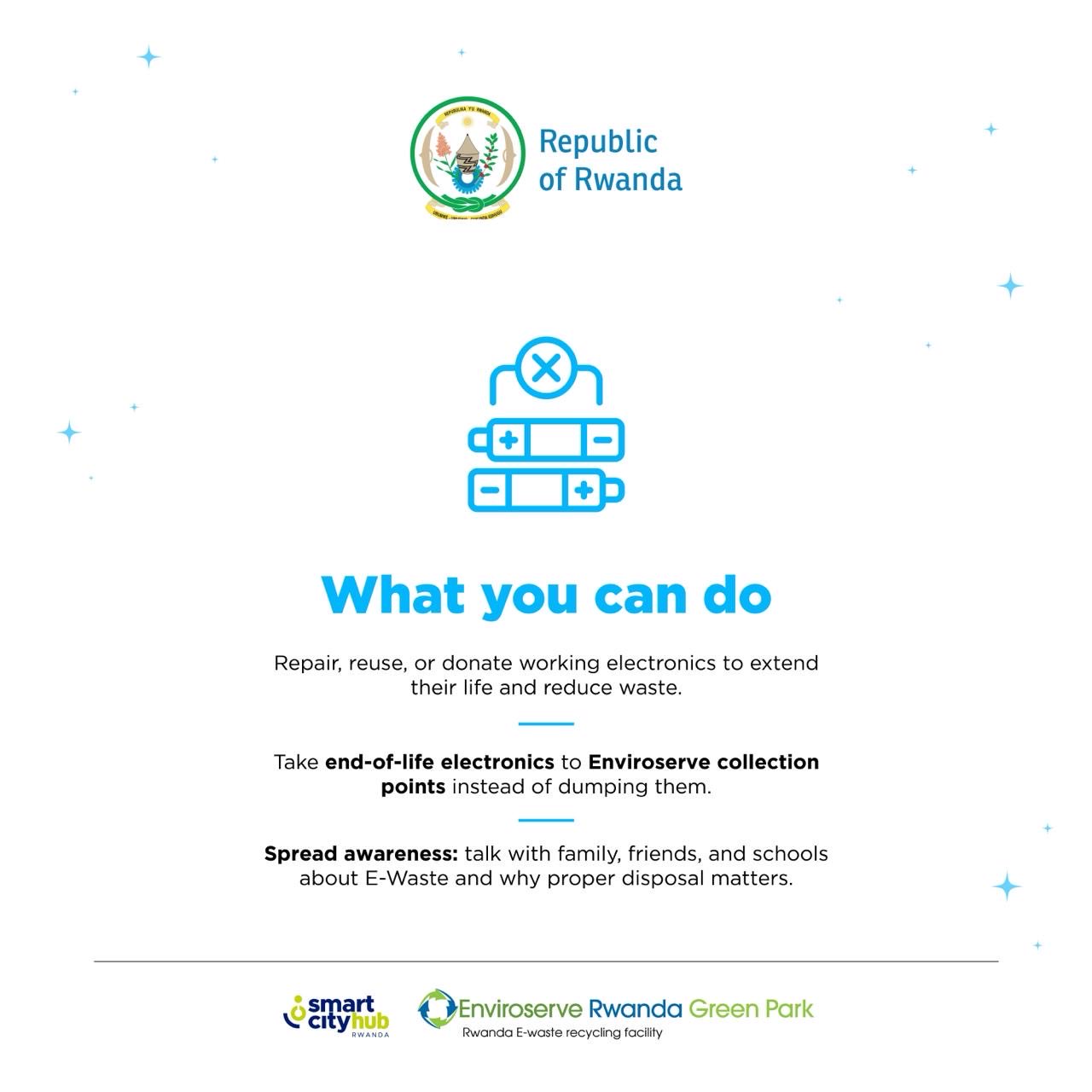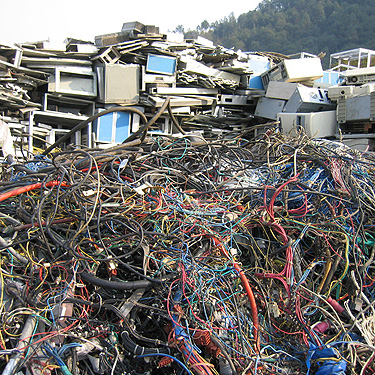Rwanda has a new campaign aimed at collecting and processing waste from electronic devices (e-waste) in an environmentally friendly way, at a time when the world is grappling with the consequences of this type of waste.
The initiative is led by the Ministry of Information Technology and Innovation (MINICT) and seeks to address the growing challenge caused by the increasing use of electrical and electronic devices in daily life.
Research conducted by the United Nations University indicates that over 60 million tons of electronic waste are generated globally each year, yet less than 20% is processed responsibly. This waste contains hazardous substances such as lead, mercury, cadmium, and arsenic, all of which can contaminate soil, water, and air if not properly handled.
When outdated devices are dumped in landfills or improperly burned, they release harmful gases and chemicals that pollute drinking water.
In Rwanda, technological development has led to widespread ownership of computers, phones, and other modern devices. However, as these devices are replaced, a large amount of e-waste is left without proper disposal, causing serious environmental issues, particularly in urban areas and technology business hubs.
Environmental experts warn that improper e-waste management can degrade soil quality, pollute water, and lead to health problems, including respiratory diseases and cancer.
Rwanda’s Minister of Information Technology and Innovation, Paula Ingabire, emphasized that e-waste is not only a development issue but also a public health and environmental concern.
She said: “When outdated devices are improperly handled, they can contaminate soil and water, endangering the health and long-term well-being of our citizens.”
To address this issue, Rwanda launched the Green ICT program, which aims to integrate technological development with environmental protection. The program involves collecting and processing e-waste, reintroducing it to the market, or converting it into other products in environmentally safe ways.
Enviroserve Rwanda, located in Bugesera District, exemplifies Rwanda’s progress, with the capacity to process over 10,000 tons of electronic waste annually. The facility dismantles computers, phones, televisions, fridges, and other damaged devices, recovering metals and other materials for reuse in various industries.
The government has also established secure drop-off points for citizens to dispose of old electronics, while awareness campaigns in schools and youth groups educate the public on proper e-waste handling.
The country’s new e-waste policy requires technology retailers to take responsibility for the products they sell once they are no longer in use, under the Extended Producer Responsibility (EPR) framework.
Innocent Mugabo, Director of Green ICT at MINICT, stated that when every citizen takes part in managing e-waste, they contribute to environmental protection and build a waste-free economy.
He added that the program also creates new jobs, particularly for youth, through activities like refurbishing, collecting, and reusing outdated devices.
To achieve this, the government continues to promote a circular economy, where used products are reintroduced to the market or converted into new materials.
This approach turns e-waste from a problem into an opportunity to create employment, foster economic growth, and protect the environment.
Minister Paula Ingabire concluded that Rwanda aims to be a model for Africa in environmentally friendly technology use.
She said: “We want a country that uses technology sustainably, where development is achieved without harming the environment. This is a journey we will all share.”
Proper management of e-waste is not solely the government’s responsibility but a role for every citizen. By properly disposing of your old phone, you are protecting people’s health, water, and soil.

Rwanda is on the right path to showing that technological progress can go hand-in-hand with environmental stewardship, ensuring a sustainable future for the planet.
To tackle the growing electronic waste resulting from rapid technological advancement, Rwanda has set a goal to develop a sustainable, environmentally responsible economy, known as Green Growth.
This goal focuses on reducing landfill waste, preventing environmental degradation, and promoting the reuse, recycling, and recovery of materials.
Since the enactment of Law No. 17/2019 on August 10, which regulates electronic waste, Rwanda has established an effective system for collecting, transporting, and processing e-waste safely. The law requires producers and users of electronic devices to take care of their products and penalizes improper disposal.
As part of implementing this law, the Enviroserve Rwanda Green Park was built in Bugesera District, with the capacity to process over 10,000 tons of electronic waste annually. The facility recycles metals and materials from computers, phones, TVs, fridges, and other electronics for industrial use.

Beyond environmental protection, this initiative fosters new job creation, particularly for youth involved in collecting and processing e-waste. It is a model demonstrating how Rwanda can harmonize development with environmental preservation, moving toward a Zero Waste Rwanda by 2050, as outlined in Vision 2050.





